If there are any other educators out there reading this, I'm sure it warms your heart as much as it does mine to see students so completely rapt. We looked at the organs, looked at the mouth, tounge, teeth, feet, toepads, claws, tail, etc. We noted how much fat it has on its tail compared to the rest of the body. We had a great teaching moment when one of the students wanted to play with the carcass, and his classroom teacher and peers scolded him, saying, "You have to respect something that gave its life so that you can learn from it and eat it. Would you want someone to do that to you if you were in the otter's place?" The student shook his head quietly and took in the rebuke. Regardless how you feel about animal rights and all that, I don't think anyone would deny that this 30 second interaction will stick with this group of kids, and hopefully influence their future behavior.
We worked on the otter until school was out(we started it at the end of the day), and still students wanted to hang around and watch. Two of them in particular asked out loud, "I wonder how the otter tastes?" So we called home for those two students and asked if their families would like to eat the meat -- and we found that yes, definitely they would like to cook it. So I divided the meat for them to bring home. Perhaps only in Alaska would you find schoolkids walking home with a plastic bag of meat.
The teacher and I stayed to slice more of the membranes and meat off the skin. It is amazing to me that regardless of the other activities I do, such as skiing and carrying babies, children, and all their stuff, that my muscles can never get used to sitting on the floor cutting up creatures. I guess because I'm using tiny little muscles, or nuances of motion, that I never use otherwise, and there's nothing aside from cutting up creatures that can get those muscles in shape. But man was it tiring! And just one little otter.
We ended up cutting an embarassing amount of holes in the skin. It seemed really thick, and it felt like you had to really use a lot of pressure to get through the membranes, but once you got through, you had to let up really quick. That, also, takes some muscle memory to develop, I think. But it is going to work out fine anyway, I think, because if the finished product works out well, I think the most equitable use of it -- the most students who can beneifit from it -- would be to cut strips of the fur for trim and added warmth on other projects, such as the skin booties that students make during our cultural festival. So the holes won't matter too much, as we can incorporate them into the strips we make. Yesterday we got it ready to put into the (environmentally-friendly) skin-tanning solution.
I've been getting a post ready on the process we've been figuring out for skin tanning for ages -- almost since the beginning of the school year! So I'm not going to go into it now (but now that I'm inspired, look for it soon). But something else happened that took me on a whole new train of thought.
After I posted about this experience on facebook, my friend Amy protested, "But they're so cute! I'm a cutetarian -- I don't eat cute food." Well, she's right on at least one point. Otters are cute.

No matter how adjusted I become to this Alaskan subsistence life, I can't seem to weed out (and do I really want to uproot something that's been a part of me since inception?) that little heart-melting moment when I see an animal is, well, cute.
Then there's the other feeling -- something that could be labeled as "cute" if you look at the feeling from the surface but it goes way beyond. There's a moment when, looking at something wild and really alive, that I feel awe that this creature is in the world, and doing its thing. A teacher friend asked, when she saw the otter, if I had ever seen them slide down snowy hills on their bellies. I haven't, but I can imagine being out on the tundra and witnessing such a thing, as I have with other animals -- I almost can't put it into words, witnessing its life force.
I feel like most hunters I know would laugh at my above assertions. There is a scene in the movie Australia when the white socialite is coming to the bush for the first time, riding in a jeep through the outback. They come upon kangaroos, and she is gushing, "Ooooh, BeaUtiful KangaROOs" and then pow, all of a sudden one of the hunters sitting on top of the jeep has shot it, and the next scene is them roasting it on the campfire. It's Ok, I laughed at that scene too. But when I really think about this, it feels like there is this rough, tough, rambo attitude in Alaska that animals are FOOD and that is IT. That if you feel any sentimentality towards animals, that you are some greenhorn who deserves to be poked fun of like that socialite in the movie. I don't like feeling like I have to reach some level of cold-heartedness to be a legitimate animal user.
But at the same time, uber-sentimentality sugarcoats things to the point that it's impossible to coexist with them on any true level. I've been an animal rights activist and vegan, but putting things on a pedestal and refusing any interaction with other creatures in a primal way is artificial and pretentious and styryfoam, and I don't think it's a true or fulfilling path for either party, humans or animals.
Besides, plenty of people who feel that hunting is cruel or that trapping is inhumane will eat hamburgers at McDonald's -- ever watch Food, Inc.? If you missed it, check out this Grist article, it sums up the problems pretty nicely. The mass-farming system is ridiculously cruel, not just to the animals but to the workers and to the environment. Animals raised in CAFO's (concentrated animal feedlot operations) have a horrible existence. They are victims funneled to the gluttony of consumerism -- they have no quality of life. There is no respect, no communion, in that kind of food. And yet it's more acceptable than subsistence hunting to many people.
This otter had an amazing life. It was born wild, traversed the tundra, experienced extreme weather and probably slid down a bunch of snowy hills on its belly. It was a male, so it probably fathered a few litters. It ate fresh fish, drank clear water, and died a quick death. Then it gave students a chance to learn from its innards, gave a few of them a good dinner, and will probably allow some of them to practice their sewing. Then it will keep a few babies' feet warm.
I posted about this years ago, in the beginning of the blog, but I feel like this is one step forward in the evolution of my thinking even since then, because at the time I wrote that post, I was still of the mindset that I would have to disconnect from my emotions to be able to hunt or cut up animals for food, that I would have to swallow any grief at the loss of life, awe-inspiring life. Now it feels like I've come full circle, because I have realized that having those emotions, sometimes belly-shaking emotions, about the dead creatures on my kitchen floor adds to the whole thing. I don't shake myself of the emotions, now; I invest them into the process. Recognizing their cute-ness, their beauty, being affected and touched by the life they once lived means that I will do my best to treat the animal with utmost reverence, as I do my job of taking care of its remains in the best and most productive way I can.
Recently an elder who is also a kindergarten teacher, named Dorothy, spoke to students about why it is important from a traditional perspective to take care of the environment, and she said that one time when she and her grandmother were out on the tundra, they had taken seal ribs with them to snack on. When Dorothy was done with the meat on the bone, she tossed it behind her to decompose into the tundra. Dorothy's grandmother scolded her, saying, "That seal's spirit will talk to all the other seals in the ocean and tell them that you did not treat its remains with respect. When your father goes out hunting next time, he may come home empty handed." The better thing to do was to bury the bone once you were finished eating it.
Dorothy also said that she was taught that everything has awareness, not just the living things. A log gets tired of being on one side on the ground -- as you walk by, turn it over. Another teacher told me that her grandmother taught her that even dust is grateful when you sweep it up. Just writing about this makes me feel like I've touched a chord in the universe that resonantes close to true spirituality -- the kind that imbues ever moment with meaning and mindfulness. Maybe the word mindfulness is overused these days, but I think it sums up everything I'm trying to say.
































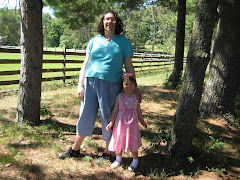
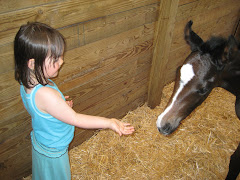
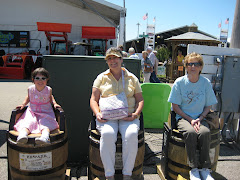
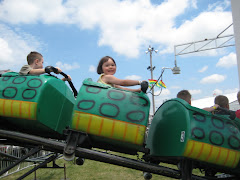
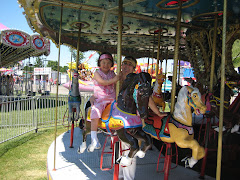
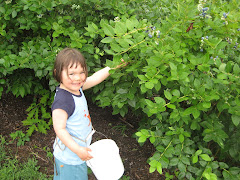
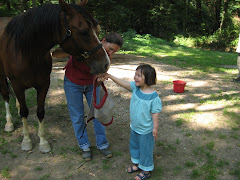
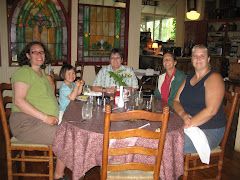
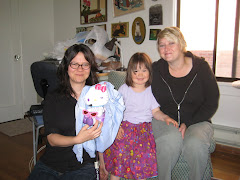

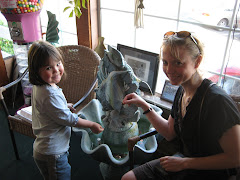
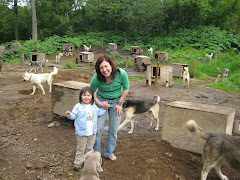
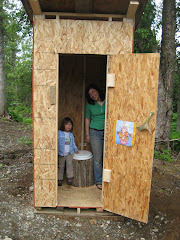
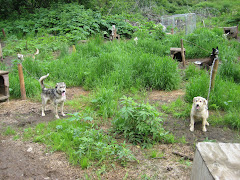

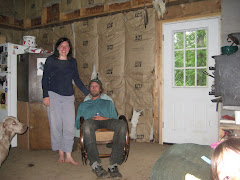
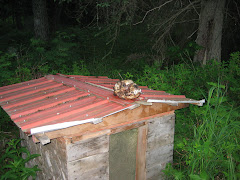




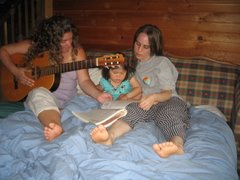

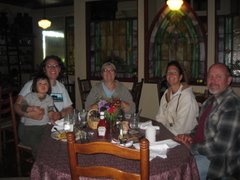
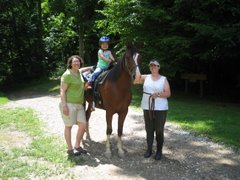
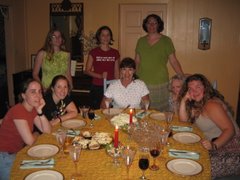
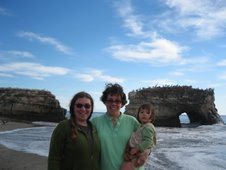
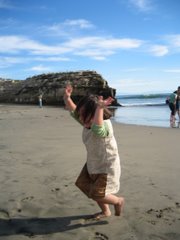






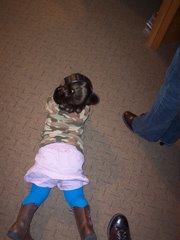
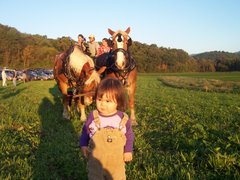
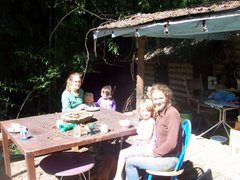
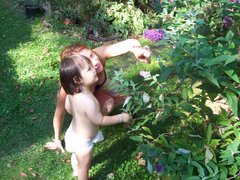


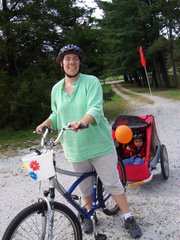

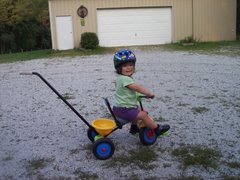
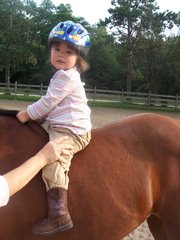
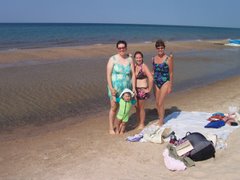

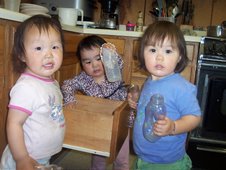
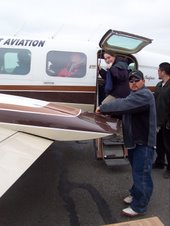
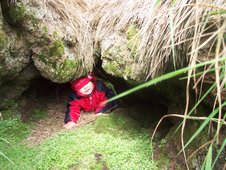
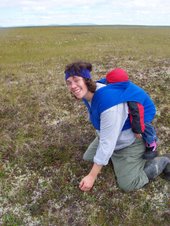



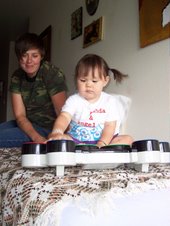

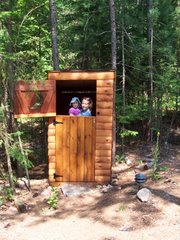




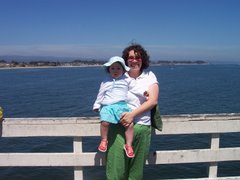

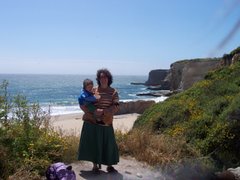
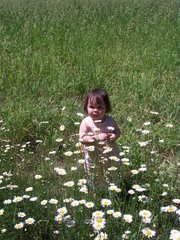














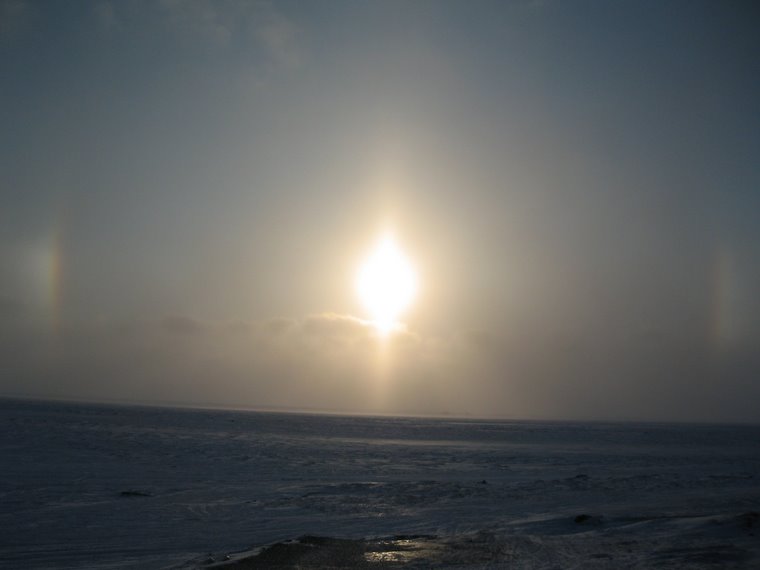
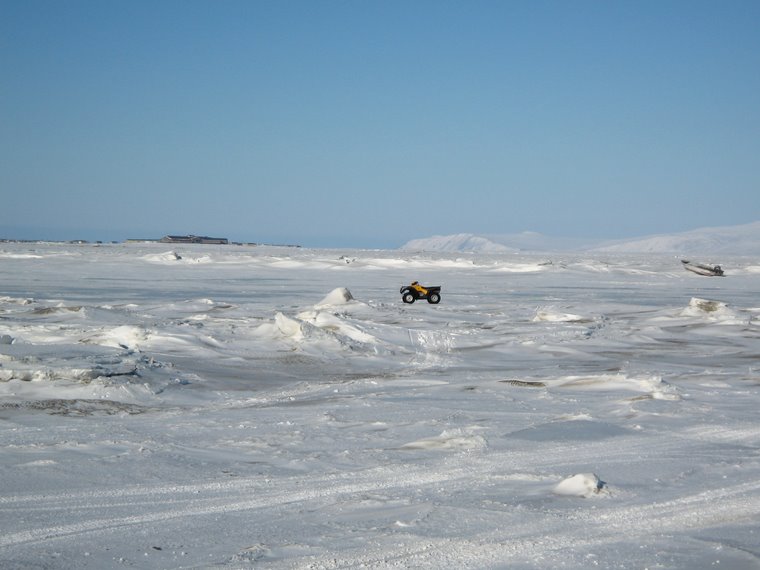

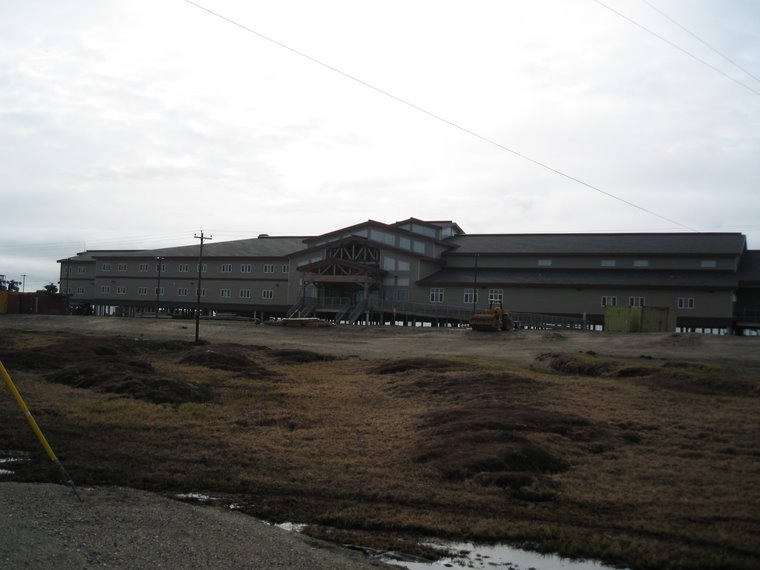

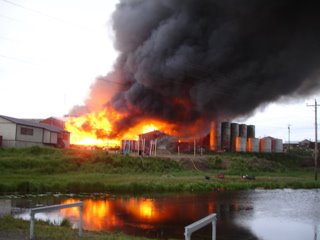
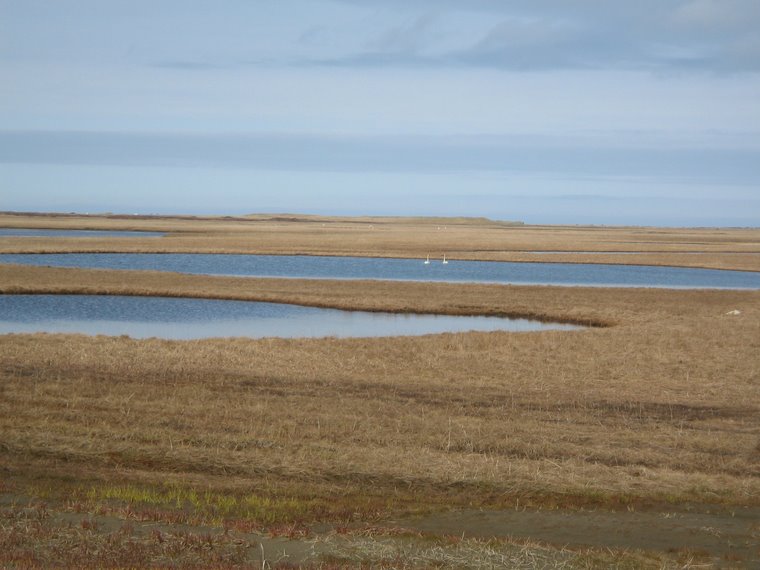

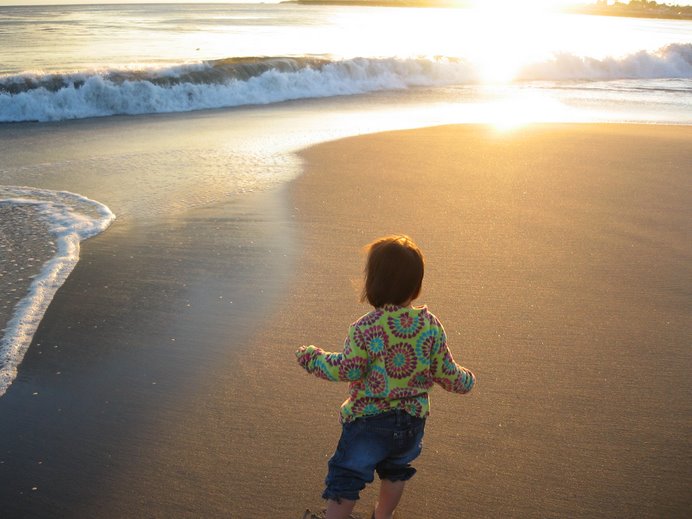
7 comments:
wow cate, what a perspective. thanks for your "inlook"
For what it's worth, I'm TRYING to buy happy food. We buy our beef from BJ's uncle who raises his cows on open pasture. They're fed grain, and only given antibiotics if they're sick. They're not given hormones. We do this both for OUR health and because it feels like the more responsible choice.
I have a source for happy chicken, but I've not done a good job of buying from her consistently.
We buy cage free eggs, and organic milk (mainly because of hormones).
I haven't got a source for happy pork yet, but I'm hoping to find one next month at the farmer's market.
In other words, I'm doing the best I can as someone living in the modern suburban Midwestern US, to make environmentally and animal friendly choices in what I feed my family... I'm trying to be mindful, not necessarily about the animal's soul, but at least about its life, and its impact on the environment. I'm lucky to be in an economic position where I can pay $7 a gallon for milk (OUCH).
I didn't intend to make you feel guilty about the otter, and it certainly sounds like you made the most humane use of all of him. Every otter should be so lucky.
I learn so much from you! I otter be a little more careful what I say on Facebook! *rimshot*
I'll be here all week, try the veal. On second thought, don't! Poor veal....
Oy.
God Bless my food, Amen!
Great post, Cate!
As a vegan-turned-hunter, I can relate to many of the thoughts and feelings you've shared here.
I can't wait to get home and share this story with my 10 year old son! He is a tree hugger in the truest sense of the phrase and is often feeling guilty when he eats meat. Maybe this story will help him come to terms with some of the emotions surrounding the consumption of meat. Most of our meat is wild and aquired through hunting as my family is full of avid hunters always ready to share their catch be it Fish, Moose, Elk, Deer or anything else. There is not waste and the circle of life continues on by choosing hunting as our food source. Thanks for such a great story! It is so refreshing to hear from someone that sees the same beauty in the circle of life that I do.
I read the start of that thinking "what would a school do with a live otter" - Oh dear!
Hello, I found your blog via Slugs On The Refrigerator, reading about how you lived in Scotland and now find bits of Alaska that remind you of it. Well we lived in Canada and then asked to be sent to Scotland because we thought it might be a bit like Alberta! The world is full of displaced people! :-)
I miss this blog :(
Post a Comment